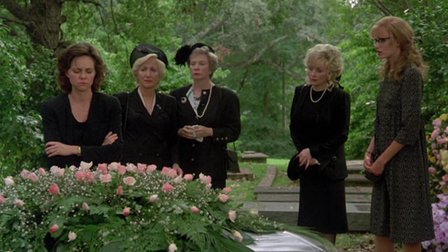The Gig Economy Has A Body Count

The #longread everyone’s buzzing about this week is Living and Dying on AirBnB by Zak Stone, a harrowing account of the journalist’s father’s death while the family was staying at a Texas property rented through the popular hotel-alternative site. Stone manages to convey his disorientation and grief while at the same time digging into AirBnB’s hands-off safety policies: the way it evades responsibility and the way we — consumers and legislators alike — allow it to.
Hotel rooms are standardized for safety, monitored by staff, and often quite expensive. Airbnb rentals, on the other hand, are unregulated, eclectic, and affordable, and the safety standards are only slowly materializing.
To be fair, Airbnb has always put basic safeguards in place, like user reviews. But its general approach to safety is consistent with Silicon Valley’s “build it first, mend it later” philosophy. …
nothing is currently done to make sure hosts actually comply with safety guidelines (or even read them), which is a problem particularly for newer properties on the platform, which Airbnb’s customers, as opposed to employees, are left to vet for safety.
Stone discovers that his dad is not AirBnB’s first or only casualty. A Canadian woman also died in a stranger’s apartment in Taiwan, where she was staying with friends for a wedding. Couldn’t a billion-dollar company do more to ascertain that guests who check in at one of its properties also, ultimately, check out?
if Google can photograph every surface of the earth and the U.S. government can conduct a census, couldn’t Airbnb peek inside 1,000,000 properties if that would make its “community” safer? Tip from the sharing economy: just hire some TaskRabbits. …
Airbnb argues that it provides a form of social good by helping people pay their bills and bringing tourists into neighborhoods to spend money. But many people are not prepared for the responsibility of becoming an innkeeper. Opportunists — and, really, anyone who is trying to afford scorching urban property markets — can no longer ignore the financial lure of Airbnb.
Renter beware, I guess.
Reading the piece was as painful as it was eye-opening, and it also made me wonder how many other people have died from participating in our gig economy. Here are some of the most extreme stories I found.
+ A six-year-old girl in California was hit and killed by an Uber driver. Uber claimed the driver wasn’t on the clock at the time. The driver was then revealed to have a conviction in his past for reckless driving.
+ A 27-year-old man in Manhattan was hit and killed by an Uber driver. The woman with him was injured and sent to the hospital but survived. She’s now suing.
+ A 38-year-old woman in Ohio was run over and killed by an Uber driver.
+ A 49-year-old Uber Black driver in Ohio was killed in an armed robbery. The gunman took the Suburban to which the victim had recently upgraded.
Lyft drivers haven’t killed anybody yet, though the cynic in me expects that that’s merely a question of scale. There aren’t nearly as many Lyft drivers about.
There are also too many assaults and property crimes to list.
TO BE FAIR: people are killed and harmed by taxi drivers on an annual basis, and it’s not like no one has ever died in a hotel. It’s just, in both of those cases, there are entities and procedures set up to deal with crises. You don’t have to call up customer service in a daze and hope the company doesn’t disclaim responsibility because it thinks of itself more like Craigslist and less like Hilton Worldwide.
This is why I’m a quasi-socialist. I believe that regulation, generally speaking, keeps us safe; oversight keeps the corporations in which we place our trust focused on something other than the bottom line.
Support The Billfold
The Billfold continues to exist thanks to support from our readers. Help us continue to do our work by making a monthly pledge on Patreon or a one-time-only contribution through PayPal.
Comments